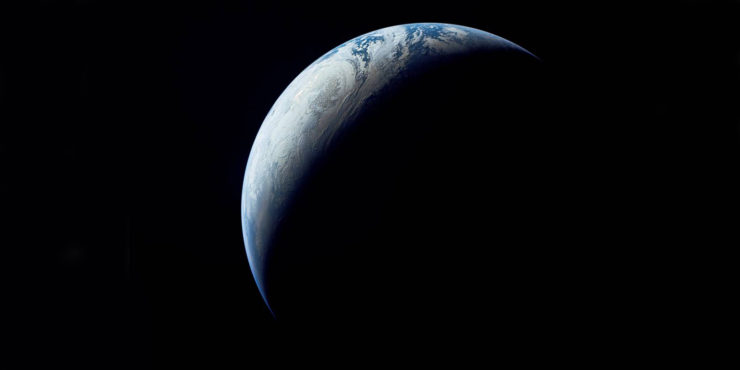An idea is gaining traction that science fiction writers cannot ignore climate change. They should include our unpredictable climate in their worldbuilding even if only in the background to the main narrative. Or they should at least clarify whether, in their fictional world, science has solved our current climate catastrophe. Charlie Jane Anders made a strong case in her article Why Science Fiction Authors Need to be Writing About Climate Change Right Now.
Historically, science fiction has led the way within literature as a whole in responding to the evidence of a warming world. SF writers have achieved this by placing climate at centre-stage in their stories. The first novel I encountered in this field was J. G. Ballard’s deeply surreal dystopia The Drowned World (1962), which imagines a world of melting icecaps and a London that is totally submerged. Ballard wrote two more climate novels back in the 1960s—The Wind from Nowhere and The Burning World.
However, it is this century that has seen the emergence of climate-related fiction as a sizable sub-genre of SF. Kim Stanley Robinson is a major influence in this field with, for example, his Science in the Capital series, 2312 and New York 2140, as is Margaret Atwood with Oryx and Crake. Among my other personal picks are Gold Fame Citrus by Claire Vaye Watkins, The Osiris Project trilogy by E J Swift, Memory of Water by Emmi Itäranta, American War by Omar El Akkad, and Clade by James Bradley.
Within the literature mainstream, we’ve seen less willingness to put climate change and science in the foreground, but with some notable exceptions including Barbara Kingsolver’s Flight Behaviour, Maggie Gee’s The Ice People and The Flood, and Richard Powers’ The Overstory.
As for this year, I’m hugely excited that we’ll see a new climate change novel from James Bradley—Ghost Species. I’m looking forward to that one!
Until then, here are five novels, all published in 2019, in which climate catastrophe takes centre stage or at least steps into a spotlight.
Gun Island by Amitav Ghosh (John Murray, 2019)
A must-read novel for me because Amitav Ghosh, in his non-fiction book The Great Derangement, lamented that mainstream realist fiction has failed to incorporate climate change in its narratives. How has Ghosh himself tackled the subject of climate in Gun Island? The answer, partly, is by setting for his story in a region of the world under great threat from flooding and rising sea levels—the Sundarbans in the delta of the Bengal River—and by engaging with the problem of population displacement and people trafficking. In The Great Derangement he questions the legitimacy of realism in a climate-ravaged world, calling on scientists to embrace the improbable in an age of highly improbable weather events. Though Gun Island is set in the present day, Ghosh incorporates Bengali legend and departs from realism in the latter part of the novel through a number of unlikely coincidences. His novel spans from the US to India and Italy, and his characters range from a rare book dealer to a marine biologist and a trafficker. In doing so he presents climate change as a hyper object—one that brings together a continuity of experiences across the globe. A highly readable novel.
Buy the Book
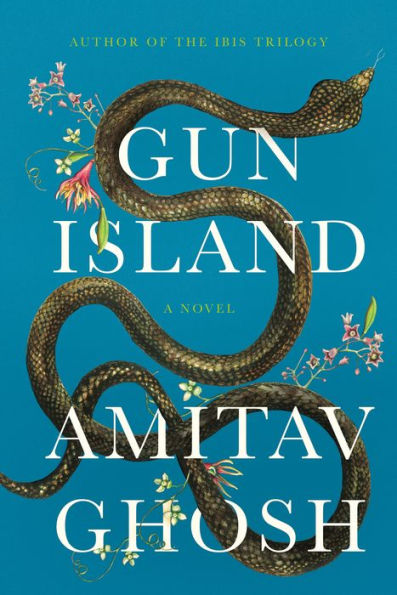

Gun Island
The Wall by John Lanchester (Faber and Faber, 2019)
Kavanagh is conscripted for two years to patrol a National Coastal Defence Structure with orders to prevent any climate refugees, or ‘others’, reaching British shores. The stakes are high for Kavanagh, for if he fails in his duties he is shipped out to sea. John Lanchester writes in pared back prose to match the monotonous life of a coastal defender. I found myself completely drawn into his fearful world. During his leave, Kavanagh visits his parents and we witness the inter-generational aggravation between them. His parents had experienced the good life of plentiful food, jobs and travel in the days before political extremism and climate catastrophe. In the latter part of The Wall, Kavanagh encounters offshore communities of refugees and deserters, introducing a slightly more upbeat note to the novel.
Buy the Book
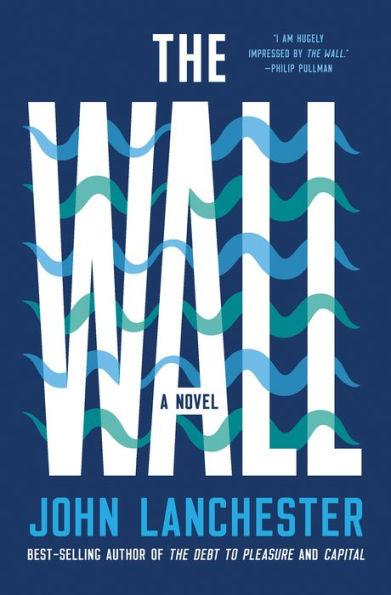

The Wall
Always North by Vicki Jarrett (Unsung Stories, 2019)
Always North is a compelling eco-thriller that jumps forward in time to become a grim dystopia. Initially the story is set on a seismic survey vessel, operating illegally in Arctic waters, with a crew that is fearful of attack from polar bears. The seismic operation is described in totally convincing detail. We revisit the crew members, including the novel’s main character, Isobel, some years later when they’re struggling to survive in a climate-ravaged world. Their desperation brought to mind the dystopian world of Gold Fame Citrus by Claire Vaye Watkins.
Buy the Book
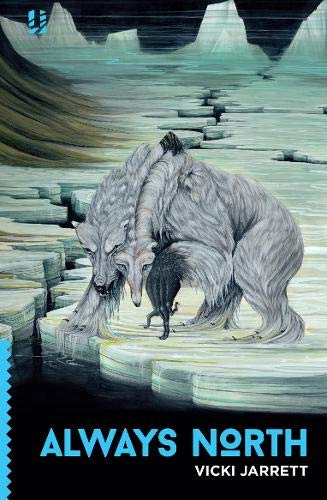

Always North
The Migration by Helen Marshall (Titan, 2019)
The Migration imagines a world where storms and flooding are becoming commonplace, including in a near-future Oxford, the novel’s setting. This novel embraces the fantastical and borders on horror, with a story centered on a teenage protagonist, Sophie, and her younger sister, Kira, who is stricken by a mystery immune disorder. The girls’ Aunt Irene is a professor of historical epidemiology with a special interest in the Black Death, and she joins the team searching for a cure. In the past year, Marshall has also written the forward to An Invite to Eternity—Tales of Nature Disrupted (Calque Press, Ed Gary Budden and Marian Womack, 2019), a fascinating anthology of eco short stories, several of which appear in translation.
Buy the Book
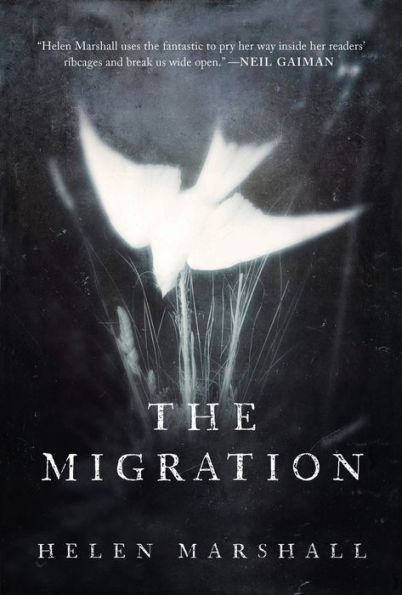

The Migration
Stillicide by Cynan Jones (Granta, 2019)
This short, poetic novel knocked me off my feet. I am always drawn to novels with a fragmented structure, and Stillicide is a fine example. The story is told through multiple voices in loosely connected vignettes, depicting a future UK trying to cope with severe water shortages. And the solution hit on by scientists and engineers is to float icebergs from the Arctic to home shores. Beautifully written, a real treat.
Buy the Book
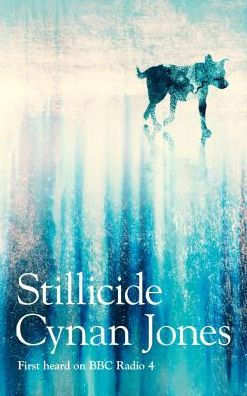

Stillicide
 Anne Charnock won the Arthur C. Clarke Award in 2018 for Dreams Before the Start of Time. She lives on the Isle of Bute, Scotland. Anne’s latest novel, Bridge 108, follows a climate refugee, Caleb, who becomes separated from his parents in their escape from a drought-stricken Spain, and is trafficked to England. Told from the perspective of Caleb as he grows towards adulthood, and from the perspectives of others he meets on his perilous journey.
Anne Charnock won the Arthur C. Clarke Award in 2018 for Dreams Before the Start of Time. She lives on the Isle of Bute, Scotland. Anne’s latest novel, Bridge 108, follows a climate refugee, Caleb, who becomes separated from his parents in their escape from a drought-stricken Spain, and is trafficked to England. Told from the perspective of Caleb as he grows towards adulthood, and from the perspectives of others he meets on his perilous journey.










